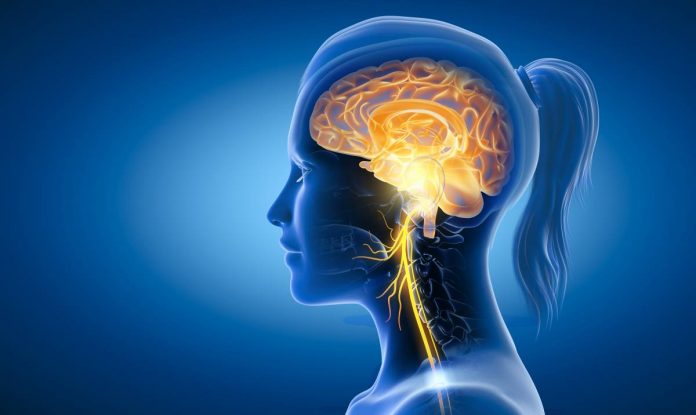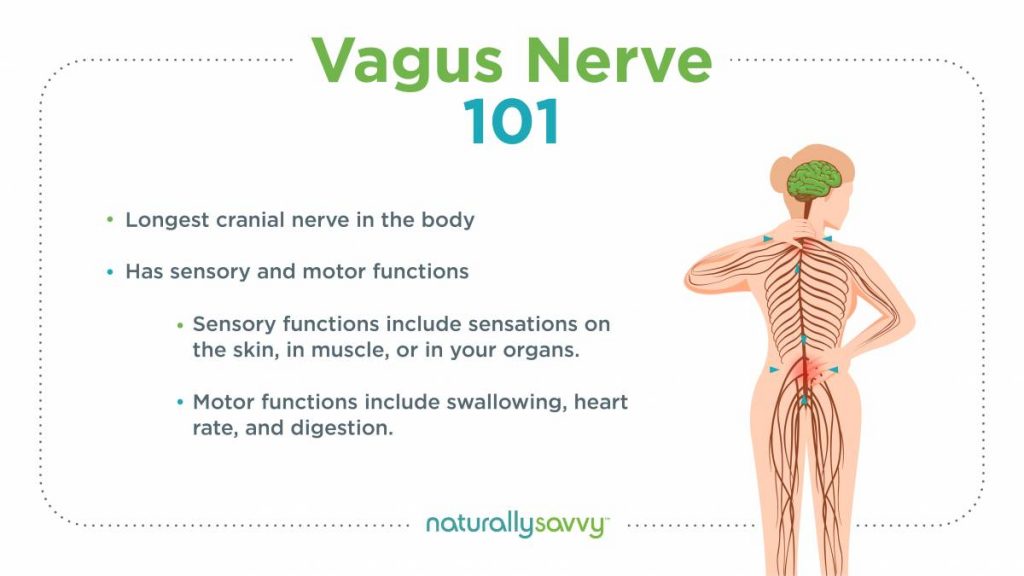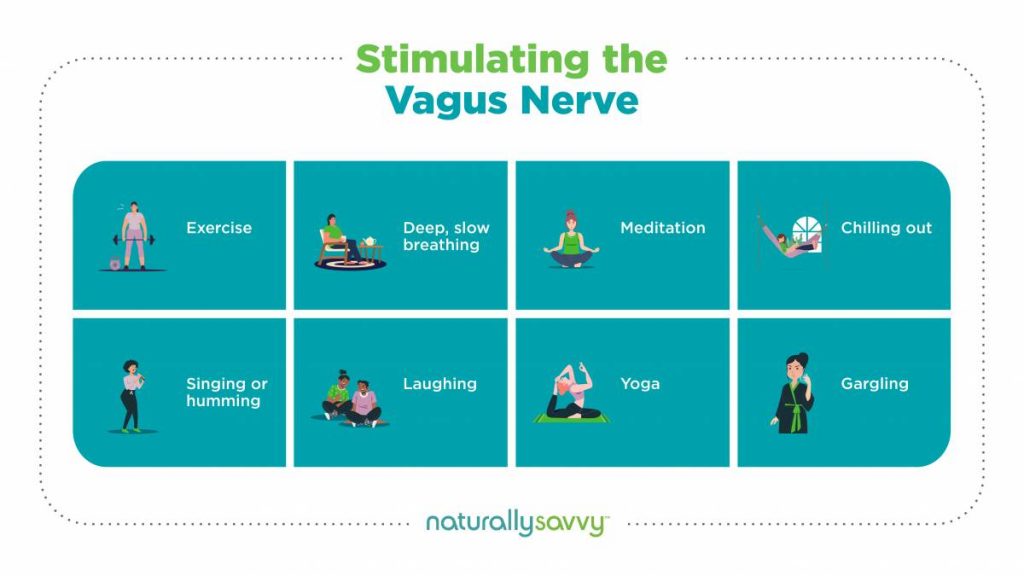
You’ve heard the expression, “You’ve got a lot of nerve!” and when we’re talking about the vagus nerve that would be a good description. Why? Let’s find out!
What is the vagus nerve?
The vagus nerve is the longest cranial nerve in the body, traveling from the brainstem down through the spinal cord to the abdominal area. Along the way, it reaches out and impacts many organs.

Also known as cranial nerve X and the pneumogastric nerve, the vagus nerve is the primary component of the parasympathetic nervous system, which is part of the autonomic nervous system. The autonomic nervous system also includes the sympathetic nervous system.
Read about fight or flight: what wild animals can teach us about stress
While the sympathetic nervous system triggers the fight-or-flight response, the parasympathetic nervous system sets off a calming response after the danger has passed. Feelings of safety trigger the front (ventral) part of the vagus nerve while danger activates the back (dorsal). When a vagus nerve is healthy, it leads an individual to respond in an appropriate or mindful way.
What the vagus nerve does
The vagus nerve is named after the Latin word for “wandering” which is appropriate because it affects so many organs and functions in the body. It performs two types of functions:
- Sensory, involved in sensations on the skin, in muscles, and in organs.
- Motor, which includes activities such as swallowing, digestion, breathing, coughing, vomiting, and heart rate variability.
This versatile nerve is also involved in the fight/flight response and how the body responds in a healthy way to stress. In fact, it’s been said that a “Healthy vagal tone [activity of the vagus nerve] means emotional regulation, greater connection, and better physical health as well….[and] you are more likely to be successful in life.”
How to stimulate your vagus nerve
All of these important functions indicate that you should strive to maintain a healthy vagus nerve (good vagal tone). You can do this by stimulating your vagus nerve, which then results in feelings of calm and relaxation, a decrease in heart rate, and slowed breathing. Here are some ways to stimulate your vagus nerve at home.
Read about supporting heart health for life
Exercise: Physical activity has many health benefits, and better vagal tone is one of them. In research involving individuals with heart problems, exercise therapy improved heart rate variability by increasing vagal tone and reducing the activity of the sympathetic nervous system.
Meditation: A 2020 study found that practicing mindfulness meditation can improve heart rate variability as well as sleep quality. In another study, individuals who participated in a six-week loving-kindness-meditation program showed an improvement in vagal tone while those who were on a waiting list for the program did not.
Singing or humming: When you sing or hum, it’s been shown you are activating your parasympathetic nervous system, slowing breathing, and increasing heart rate variability. Chanting also results in the same benefits.
Yoga: This activity activates the parasympathetic nervous system and can help with blood flow, digestion, and heart rate.

Deep slow breathing: Research shows that practicing deep, slow breathing can improve vagal tone and reduce anxiety.
Relaxing (chillin’ out): Activities that are relaxing and calming help improve vagal tone, whether it’s tai chi, socializing with friends, kicking back with a book, or some of the stress-reducing recommendations already noted here.
Laughing: In a study of laughter yoga, the researchers found that a 20-minute session (which included meditation, breathing, and changing as well as laughter) resulted in an improvement in heart rate variability and mood.
Gargling: The benefit from gargling is similar to that achieved by singing or humming.
According to clinical psychologist Dr. Glenn Doyle, “The vagus nerve is deeply plugged into our heart, our guts, and our voice….When we speak, shout, sing, the vagus nerve is lit up like a Christmas tree—which is one of the reasons why those activities can be so cathartic and emotional for so many of us.”
Bottom line
A healthy vagus nerve is essential for optimal function of many organ systems and overall good health. Take care of yours by engaging in stimulating activities as much as possible!




